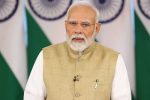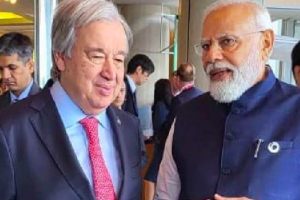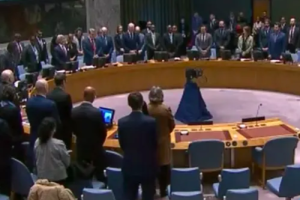The most improbable of presidents, Donald Trump reshaped the office and shattered its centuries-old norms and traditions while dominating the national discourse like no one before.
Trump, governing by whim and tweet, deepened the nation”s racial and cultural divides and undermined faith in its institutions. His legacy: a tumultuous four years that were marked by his impeachment, failures during the worst pandemic in a century and his refusal to accept defeat.
He smashed conceptions about how presidents behave and communicate, offering unvarnished thoughts and policy declarations alike, pulling back the curtain for the American people while enthralling supporters and unnerving foes — and sometimes allies — both at home and abroad.
While the nation would be hardpressed to elect another figure as disruptive as Trump, it remains to be seen how much of his imprint on the office itself, occupied by only 44 other men, will be indelible. Already it shadows the work of his successor, President-elect Joe Biden, who framed his candidacy as a repudiation of Trump, offering himself as an antidote to the chaos and dissent of the past four years while vowing to restore dignity to the Oval Office.
“For all four years, this is someone who at every opportunity tried to stretch presidential power beyond the limits of the law. He altered the presidency in many ways, but many of them can be changed back almost overnight by a president who wants to make the point that there is a change,” said presidential historian Michael Beschloss.
Trump”s most enduring legacy may be his use of the trappings of the presidency to erode Americans” views of the institutions of their own government.
From his first moments in office, Trump waged an assault on the federal bureaucracy, casting a suspicious eye on career officials he deemed the “Deep State” and shaking Americans” confidence in civil servants and the levers of government. Believing that the investigation into Russian election interference was a crusade to undermine him, Trump went after the intelligence agencies and Justice Department and later unleashed broadsides against the man running the probe, special counsel Robert Mueller.
His other targets were legion: the Supreme Court for insufficient loyalty; the post office for its handling of mail-in ballots; even the integrity of the vote itself with his baseless claims of election fraud.
“In the past, presidents who lost were always willing to turn the office over to the next person…What we”re seeing right now is really an assault on the institutions of democracy,” said Richard Waterman, who studies the presidency at the University of Kentucky.
Jeopardising the peaceful transfer of power was hardly Trump”s first assault on the traditions of the presidency.
He didn”t release his tax returns or divest himself from his businesses. He doled out government resources on a partisan basis and undermined his own scientists.
He named a secretary of defence, Jim Mattis, who needed a congressional waiver to serve because the retired general had not been out of uniform for the seven years required by law. In that one example, Biden has followed Trump”s lead, nominating for Pentagon chief retired Gen. Lloyd Austin, who also will need a waiver.
Trump”s disruption extended to the global stage as well, where he cast doubt on once-inviolable alliances like NATO and bilateral partnerships with a host of allies. His “America First” foreign policy emanated more from preconceived notions of past slights than current facts on the ground. He unilaterally pulled troops from Afghanistan, Somalia, Iraq and Syria.
He pulled out of multinational environmental agreements, an action that scientists warn may have accelerated climate change. He stepped away from accords that kept Iran”s nuclear ambitions in check. And his presidency may be remembered for altering, perhaps permanently, the nature of the US-China relationship, dimming hopes for a peaceful emergence of China as a world power and laying the foundation for a new generation of economic and strategic rivalry.
While historians agree that Trump was a singular figure in the office, it will be decades before the consequences of his tenure are fully known. But some pieces of his legacy already are in place.
He named three Supreme Court justices and more than 220 federal judges, giving the judiciary an enduring conservative bent. He rolled back regulations and oversaw an economy that boomed until the pandemic hit. His presence increased voter turnout — both for and against him — to record levels. He received unwavering loyalty from his own party but was quick to cast aside any who displeased him.
“President Trump has been the person who has returned power to the American people, not the Washington elite, and preserved our history and institutions, while others have tried to tear them down,” said White House spokesman Judd Deere.
At times, Trump acted like a bystander to his own presidency, opting to tweet along with a cable news segment rather than dive into an effort to change policy. And that was one of the many ways Trump changed the way that presidents communicate.
Carefully crafted policy statements took a back seat, replaced by tweets and off-the-cuff remarks to reporters. The discourse hardened, with swear words, personal insults and violent imagery infiltrating the presidential lexicon. And there were the untruths — more than 23,000, according to a count by The Washington Post — that Trump tossed out with little regard for their impact.

























Add Comment